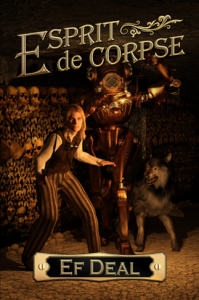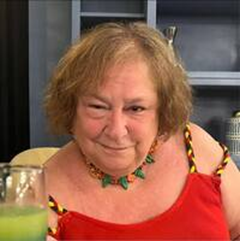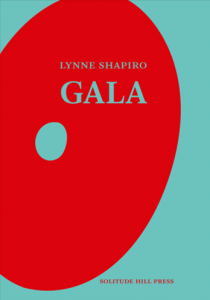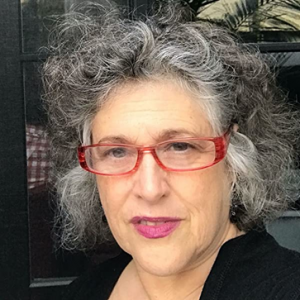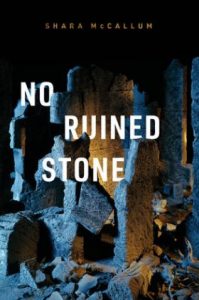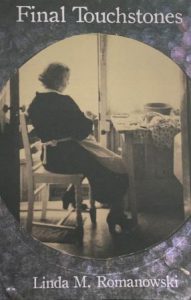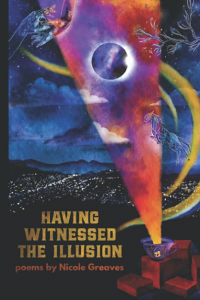
Review by Amy Small McKinney
In Nicole Greaves’ book, Having Witnesses The Illusion, the first poem, “Prelude” from Section I. Another Country invites us into her world of deep imagery and lyricism joined with storytelling. Though you know nothing about this world and the person she is addressing yet, you learn quickly that the search for others, connection in the midst of disconnection, and the desire to be both part of and out of this world is a central theme. In this introductory poem, Greaves begins with a girl’s love of horses:
There was a year when you thought of nothing
but horses, from wild mustangs to thoroughbreds,
And then, the first mention of language, how it is both “arrow” and forgiveness:
For a year you felt too massive to stay,
too wounded to move forward. You listened for bells,
for the precision in a sentence that held the shape of an arrow,
one that knew how to find the heart
Until finally, the possibility of connection:
It was then you began to realize that there might be others
who thought they could become horses too, and you called to them (1).
Throughout this book, Greaves also alludes to dark and light, hidden and revealed. In “Conventicle,” there is “Moonlight, the crack of stone / inside a hidden doorway” and “no men // for miles, only us, here / in this country between countries, // in this light of refuge” (2).
In “Sacks of Scarabs, Greaves continues this theme of dark and light, foreign and hopeful belonging as she and her mother held hands through the museum:
The museum’s glass box was hidden from light
in between the hopeful columns, the scarabs swarming in a pool
of fabric. Somehow they made the presence of my mother’s body
more familiar, in the way her shadow made it more foreign (3).
This sense of foreignness linked arm and arm with togetherness continues throughout the book
in many disguises, including and especially, the power of language. For example, in the poem, “Mine,” Greaves writes, “Through the keyhole of my ear / where I was locked in / to what my mother and tía / were saying, the disagreement / of their silhouettes / in their first language, / language of sails and conquest, / where azul is closer / to the blue in fire, / hija closer / to the thread in daughter, / and mía closer to mine” (4).
Greaves often weaves Spanish into English, including when her beloved mother tries out idioms in English, saying: “Don’t look a dark horse in the mouth”(5). As a child, a teacher scolded Greaves for rolling her r’s too much, an allusion to her mother tongue. Greaves uses language to highlight lack of language, words like “stutter” and “the anticipation of sound.” And she returns to the horse frequently, whether in lines from “Caning”: “When he tightened the strands he leaned // back as if pulling on reins, the horse / the night before him when silence / magnifies the anticipation of sound” (13). And to the sense of being different—an outsider listening in, an outsider wondering: Will I always be the sum / of my poverty? (11)
Section II. The Waiting Room, confronts other ruptures, the loss of the beloved dying mother as well as the author’s own miscarriage where, after watching a child and father at a playground, she says during her own winter, “this is the sugar the body craves.” (41)
In this section focused on grief, the title poem, “Having Witnessed The Illusion” is written in tercets, emblematic of mother, daughter, and death waiting in the wings, and returns us to the same sense of struggling to see inside, through a peephole or listening from outside a door: “to reveal just enough to say there was more // in the way a knitted sweater is a series of portholes, / and the body, the ocean, the thing contained / in its projection, a ship in a bottle, a cancer in its cell, // or the waiting room itself. (29)
In “Moments In The Trees,” Greaves continues:
when the mind is years ago
in the village that no longer is
a village, thinking of that boy who no longer is
a boy. Her brow furls like someone
blowing into a reed
to push music through, tightening
the pitch into its eye, sharpening
until the voice is gone. (45)
Greaves finds her way back to her mother, through her mother’s words that become her own in Section III Reclaimed. In “Awakening To My Mother’s Voice From Beyond:” Maybe, hija, you should go to the / planetarium today and watch the universe / expanding (55).
Greaves moves her readers away from the peephole, away from the porthole, away from the small openings between herself and the world, including the mother’s world before America, and into something larger. Now there are doors and windows into the world, a house painted “cerulean blue / like the house in my mother’s story, // the one in her village, made of water,” and then: “In this house, my mother said, // there are no masculine or feminine words, / the spoons were always joyous // and women always safe.” (“Mi Casa” 57)
And in “Sorting Through My Inheritance,” Greaves admits: “Sometimes there’s no translation. / A word so much a word that you can’t speak it. More taste. Filament.” and how “All through adolescence, I was always both awake and asleep. / You would ask me:¿Entiendes?/ Then quickly remembered English: Do you understand?/ “Entiendo, Mamá.” And finally, “After you are dead, I’m happiest becoming you.” (73)
And as a mother to her own children, Greaves, in “Epilogue,” while painting wooden boxes, tells her readers, “Then we went to the fields / to be with the horses, but we could only hear them. // The smallest muñeca said to me, / You can’t tell if they’re coming or going.” She answers: “No, my lovely little nut, I said, / they are one and the same.” (75)
By the end of the book, Greaves has brought us full circle, moving us from the experience of being different, to loss, and to finally finding what she has gained and who she has become. In struggling to understand her single mother’s immigrant experience, and her own shuttling between languages and profound sense of feeling like, and being viewed by others, as an outsider, we journey with Greaves as she, daughter, teacher, mother, and writer, moves closer to belonging. “In the last bench in Meeting I am / all the other women” (“Faith And Practice” 63).
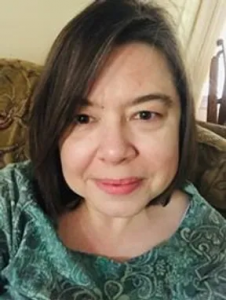 Nicole Greaves’s poetry has appeared in numerous literary reviews––including SWWIM, Cleaver Magazine, Matter Poetry, American Poetry Review; Philly Edition, Radar Poetry––and was awarded prizes by The Academy of American Poets and the Leeway Foundation of Philadelphia. She was a finalist for the 2020 Frontier Digital Chapbook Contest and a 2015 finalist for the Coniston Prize of Radar Poetry, who also nominated her for The Best of the Net. She was selected by Gregory Orr as the 2003 Poet Laureate of Montgomery County, Pennsylvania.
Nicole Greaves’s poetry has appeared in numerous literary reviews––including SWWIM, Cleaver Magazine, Matter Poetry, American Poetry Review; Philly Edition, Radar Poetry––and was awarded prizes by The Academy of American Poets and the Leeway Foundation of Philadelphia. She was a finalist for the 2020 Frontier Digital Chapbook Contest and a 2015 finalist for the Coniston Prize of Radar Poetry, who also nominated her for The Best of the Net. She was selected by Gregory Orr as the 2003 Poet Laureate of Montgomery County, Pennsylvania.
Reviewer: Amy Small McKinney: Amy Small-McKinney is a Montgomery County PA Poet Laureate Emeritus (2011). Her second full-length book of poems, Walking Toward Cranes, won the Kithara Book Prize 2016 (Glass Lyre Press). Her chapbook, One Day I Am A Field, was written during COVID 2020 and her husband’s death (Glass Lyre Press, 2022). Her poems have been published in numerous journals, for example, American Poetry Review, The Indianapolis Review, The Inflectionist Review, Baltimore Review, Pedestal Magazine, SWWIM, Persimmon Tree, ONE ART, and The Banyan Review, and she has contributed to several anthologies, including Rumors, Secrets, & Lies: Poems about Pregnancy, Abortion, & Choice (Anhinga Press, 2022) and Stained: An anthology of writing about menstruation (Querencia Press, 2023), among others. Her poems have also been translated into Romanian and Korean. Her book reviews have appeared in journals, such as Prairie Schooner and Matter. She has an MFA in Poetry from Drew University and currently resides in Philadelphia.
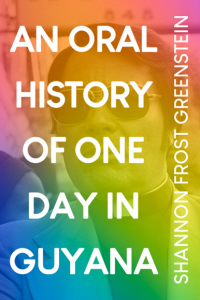
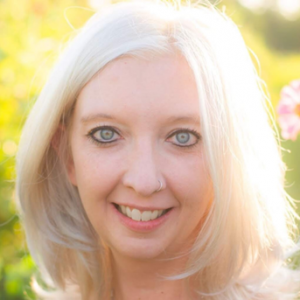

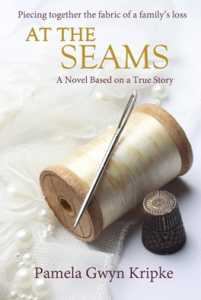

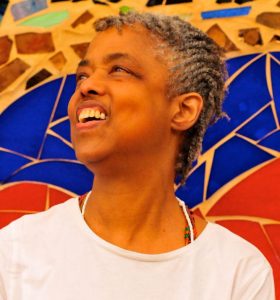
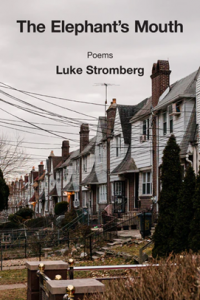
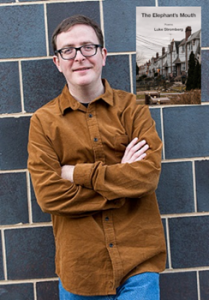
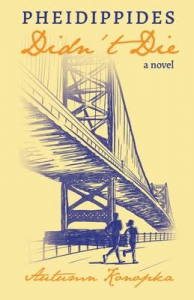
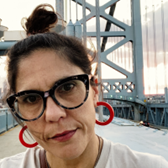

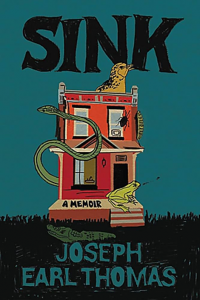


 Nicole Greaves’s poetry has appeared in numerous literary reviews––including SWWIM, Cleaver Magazine, Matter Poetry, American Poetry Review; Philly Edition, Radar Poetry––and was awarded prizes by The Academy of American Poets and the Leeway Foundation of Philadelphia. She was a finalist for the 2020 Frontier Digital Chapbook Contest and a 2015 finalist for the Coniston Prize of Radar Poetry, who also nominated her for The Best of the Net. She was selected by Gregory Orr as the 2003 Poet Laureate of Montgomery County, Pennsylvania.
Nicole Greaves’s poetry has appeared in numerous literary reviews––including SWWIM, Cleaver Magazine, Matter Poetry, American Poetry Review; Philly Edition, Radar Poetry––and was awarded prizes by The Academy of American Poets and the Leeway Foundation of Philadelphia. She was a finalist for the 2020 Frontier Digital Chapbook Contest and a 2015 finalist for the Coniston Prize of Radar Poetry, who also nominated her for The Best of the Net. She was selected by Gregory Orr as the 2003 Poet Laureate of Montgomery County, Pennsylvania. 